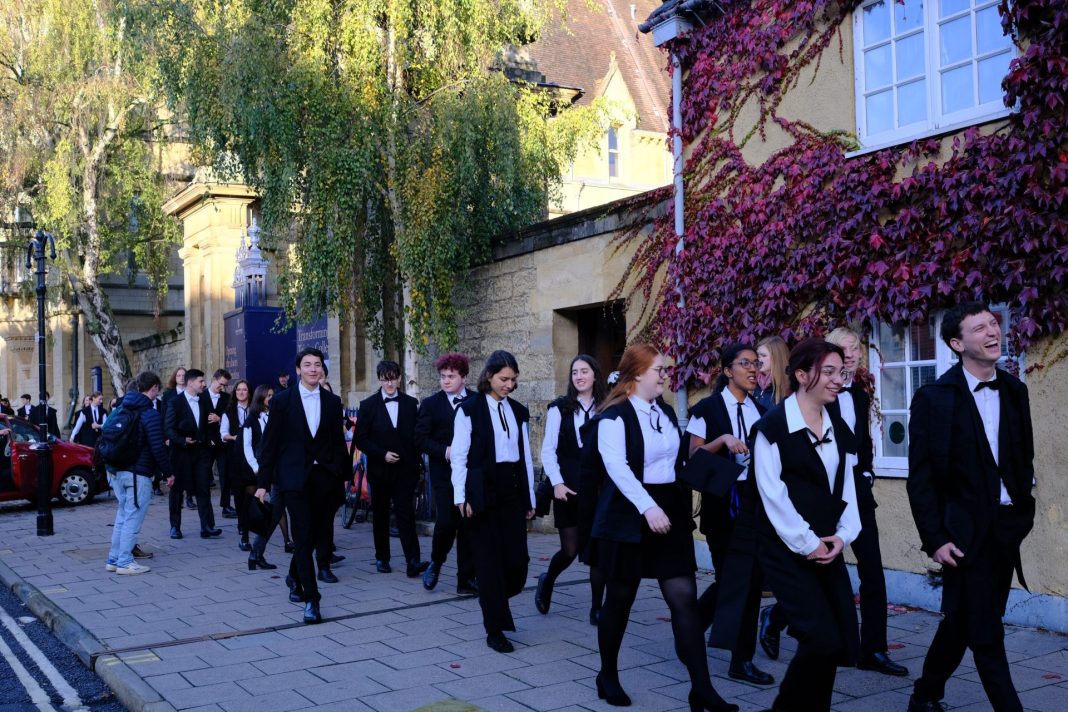The most rewarding thing I did in my first year at university was to sign up to Oxbridge Launchpad. During the Hilary break and in desperate need of something to take my mind off a sub-par Q-Step essay, I came across the initiative – a non-profit aimed at increasing the number of state-educated and underrepresented students enrolled at two of the best universities in the world. As a volunteer tutor, I was assigned to an extremely bright young person and we worked in free weekly sessions to develop her personal statement, practise for the entrance exam, and prep for her interview.
When the news came in January that her application was successful, I was buzzing. I by no means got her place for her but I felt my small effort had at least sent her into that fateful Teams call in December a little more prepared, having helped bridge the ‘information gap’ that means private school students are more aware of what’s needed to succeed than their state-educated counterparts. In a year of privilege and solipsism, dining in giant halls, dressing up for silly Latin ceremonies and fretting over the trivial concerns of my degree, it felt like genuinely important work.
So when an email arrived this March inviting me to a Zoom call to hear about the “exciting new chapter” for the organisation, I was naturally interested. What I found, however, left me less than stoked. We were informed that the organisation was becoming for-profit, putting its resources behind a paywall and charging £29.99 per tutoring session. They would now offer ‘community spaces’ (read: a discord server) for paying customers to be in constant contact with Oxford students, in what very much resembles the money-for-connections network that the initiative was founded to challenge.
It is obvious that this is a betrayal of the organisation’s original raison d’être. Slapping a hefty fee on the tutoring makes the crucial information tutors provide drastically less accessible. Take the (at least) 22 hours of free tutoring I provided. It would now cost a student £660, a sum few have to splash on an application that may well be unsuccessful. Whilst the staff on the zoom call cited issues with the old system (too many tutors and too little oversight) as a reason for this change, rectifying these does not require the introduction of profit. The founders could have created stronger vetting for tutors or introduced a small fee to cover administration costs, without yanking the prices as high as they have. The old website, now replaced by a sleek new model, declared that “our sole mission is to propel the brightest minds to two of the most prestigious institutions in the world”, but clearly making a pretty penny has become a priority as well. Oxbridge Launchpad is now just another tutoring company, albeit one that is shrouded in the language of social justice. This, in the context of Oxford’s declining state school offer rate, is pretty depressing.
But I’m not here just to bash the organisation for its decision. Ultimately, these changes to Oxbridge Launchpad are a reminder that no-one can improve access to Oxford and Cambridge for them, they must do it themselves. As long as the disparity between private and state education remains, and it looks set to do so as Rachel Reeve’s budget indicates that no new funding is coming, only the institutions themselves have the means to correct imbalances. Crucially, they are also the ones with the real incentive to do so. Remaining a top university requires choosing the students with the most potential to excel in higher education, not those who have been molly-coddled to success at their secondary school.
Certainly, the universities are making some effort, for instance Oxford’s Astrophoria foundation year. But places on such initiatives are limited, and are not the widespread reform of the admissions process needed to correct the legacy the pandemic left on education inequalities. The current provisions remain exclusive, selecting those who have managed to already excel despite their disadvantages, for instance Oxford’s UNIQ program states that it “prioritises places for students with good grades”. More must be done to discover not only the already successful, but those with potential.
Many individual colleges do fantastic access work, but the problem is compounded by the fact that those most determined to correct inequalities often have the least means to do so. Mansfield, the only Oxford college whose ratio of private to state school students reflects national averages, has the smallest endowment. Meanwhile, many of the wealthiest colleges, such as Magdalen, remain happy to sit on their hands and accept the highest proportions of the privately educated. What’s required is a coordinated effort across colleges, and that will only occur if the central administration makes it happen.
External charitable initiatives are important. I for one have seen the difference they can make. But Oxford and Cambridge can no longer rely on them to do their access work for them. Oxbridge Launchpad’s prioritisation of profit over progress shows us that, if inequalities in admissions are to improve, the universities will have to roll their sleeves up and get to work.


